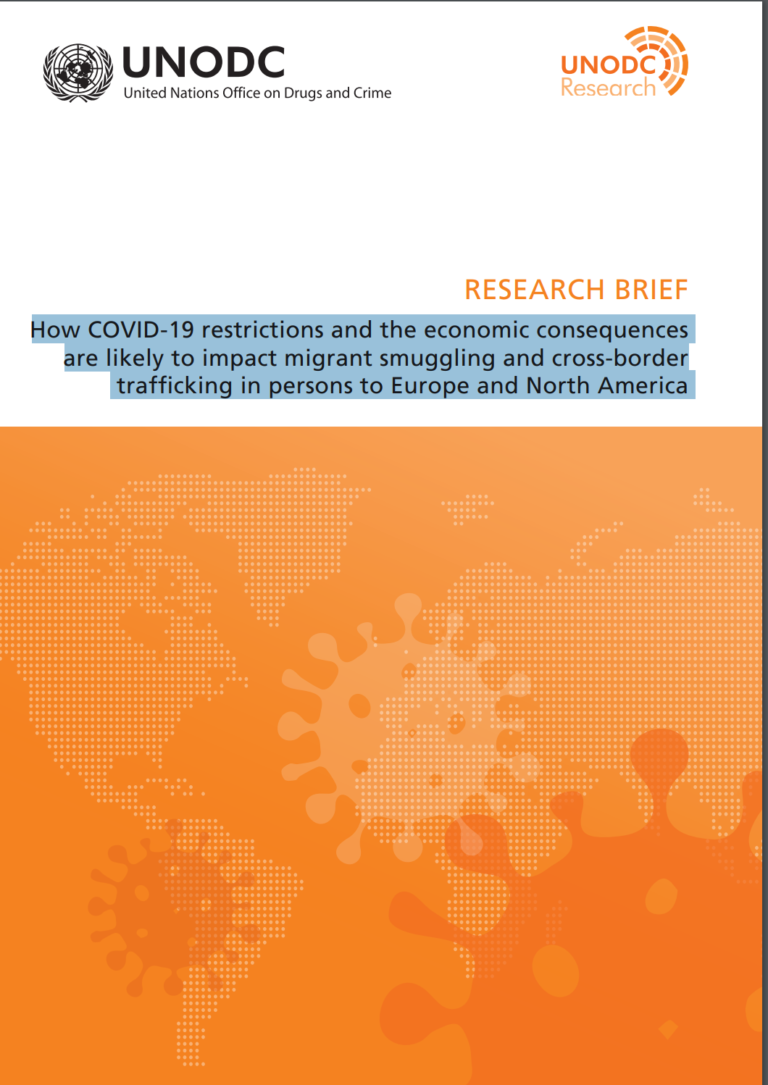This Research Brief analyses possible scenarios of how smuggling of migrants and cross-border trafficking in persons are likely to be affected by the COVID-19 crisis along mixed migration routes to two important destination regions: North America and Europe. One of the major consequences of the pandemic is the economic recession resulting from the lockdown measures governments have put in place to contain the diffusion of the virus. This paper draws on the dynamics observed during other global economic downturns, such as the 2008 Global Financial Crisis, to assess how the COVID-19-induced recession may affect smuggling of migrants and trafficking in persons in the medium to long term. The research also reviews available information on current patterns during the COVID-19 lockdown measures and mobility restrictions, and on drivers of migration, as a way to assess possible fluctuations of trends in smuggling of migrants and cross-border trafficking in persons in the near future.

